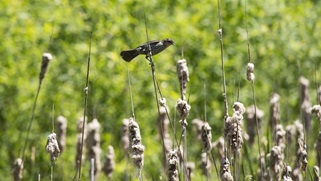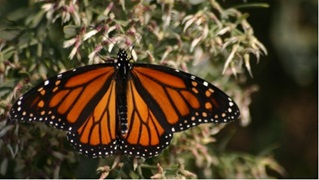Expanding the educational horizon on Sullys Hill
North Dakota preserve is the backdrop for natural environment-based lessons
On this weekday morning, nearly 50 energetic fifth graders hike the nature trail at the Sullys Hill National Game Preserve.
Then, something extraordinary develops – silence.
Every day, rain or shine, students in the Sullys Hill Classroom Program from Central Middle School, in Devils Lake, N.D., start the morning with a nature walk and a few moments of quiet reflection on their surroundings. They observe seasonal changes, weather, animal sights and sounds.
It’s an exercise designed to get students in tune with the natural environment that surrounds them – and it’s part of an innovative program, operated out of the game preserve’s visitor centre, that sees teachers use an ecologically rich environment to build lesson plans for science, math and language arts lessons.
Soon, technology will be added to the fold.
“In the fifth grade, we need to teach 21st-century skills like computer literacy. It’s not a piece we can leave out,” says Marie Snyder, a math and language arts teacher in the Sullys Hill program.
This fall, with the help of a $5,000 community investment grant from Enbridge, students in the classrooms at Sullys Hill will have 24 new Chromebook laptops to develop those technological skills. It’s an opportunity the students might not otherwise have had, says Snyder.
“Typically, when we get funding for technology like this, they need to keep it in the school in town so that more kids have access to it,” she says. “But these kids also needed access to some type of technology.”
Students will use the laptops for writing and research in each of their subjects, and in doing so, develop essential computer literacy skills.
In the past, Enbridge has supported the Sullys Hill program in other ways, funding the purchase of a SMART Board, binoculars, and trundle wheels – simplified surveyor’s measuring tools – that help teachers develop applied learning for the students.
“The students get to see how the concepts from the classroom can be applied in the real world. They see that learning can be fun, that learning can be useful,” says Snyder.
“They’re paying attention to their surroundings and looking at nature in a whole new way.”
Meg Morley, a North Dakota-based senior public affairs advisor with Enbridge, says the program’s capacity to build respect for the land resonates at Enbridge, where integrity, safety and respect are core values.
“It’s just such an honor for us to be able to support a program like this that teaches kids respect for the natural environment,” says Morley. “This experience creates a vital connection to the land for the students that will last them a lifetime.”










